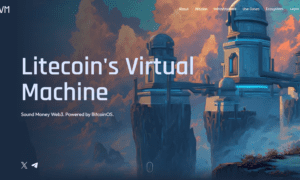Algorand is based on (a novel and super fast) message-passing Byzantine agreement. ALGO is the native currency of the Algorand protocol. Algorand was born to realize the true democracy and effectiveness of public ledger accounts. It requires negligible amount of computation, making forks extremely unlikely.
Core Features of Algorand
While ensuring the security of each user’s account, Algorand ensures security against assaults at both the network and consensus protocol levels.
- Algorand selects users to submit block proposals for a certain round using cryptographic sortition. A committee of voters is chosen to vote on block proposals when they are submitted to the blockchain. The block can be approved if a super majority of the votes come from trustworthy participants.
- Processing power and IT requirements for the Algorand platform are quite low. Everyone online who has access to algos is instantly qualified to take part in block consensus.
- Partition resilience.The compute cost incurred by a single user in the Algorand protocol is limited to producing and verifying signatures as well as straightforward counting operations. Algorand’s consensus mechanism can expand to millions of users and maintain a high transaction rate as a result, all without imposing a major financial burden on the participating users.
How Many ALGO Tokens Are There?
The ALGO maximum supply is 10 billion.About 6.9 billion ALGO are currently in circulation across all ecosystems, with the remainder tokens being retained in safe storage by the Algorand Foundation.
How to Buy ALGO
You can use the MEXC Global search bar to search for “ALGO” to view available trading pairs.
And you can also find a detailed guide on how to buy ALGO token.
How many use cases are there for smart contracts?
-
A white paper by the Chamber of Digital Commerce with the support of the Smart Contracts Alliance presents 12 use cases of contracts for business and beyond.
- The Ethereum blockchain was the first to demonstrate the power of smart contracts, so Ethereum smart contracts are the natural starting point for analyzing successor technologies. Their pros and cons have been extensively discussed in the blockchain community, and the discussions have triggered a variety of new designs for smart contract languages. Here, we focus on two issues of particular importance to the Algorand blockchain.
- Suppose Alice and Bob agree that if Alice sends 100 “DollarCoins” to Bob, then Bob will transfer 100 “BobTokens” to Alice. Alice wants to be sure that if she transfers the coins, she gets the tokens, and Bob wants similar reassurances. This kind of transaction, where transfers controlled by mutually suspicious parties either both happen or both do not happen, is called an atomic swap. Programming an atomic swap using Ethereum’s smart contracts requires a hashed timelock contract (or something similar) – a delicate, timed, multi-phase protocol, where any programming error can be disastrous.
Conclusion
Decentralization, size, and security are three technological hurdles that Algorand addresses that have hindered widespread blockchain usage for years.
Algorand(ALGO) consensus process is PURE PROOF OF STAKETM and permissionless. It guarantees complete accessibility, safety, and speed inside a totally decentralized network.



































